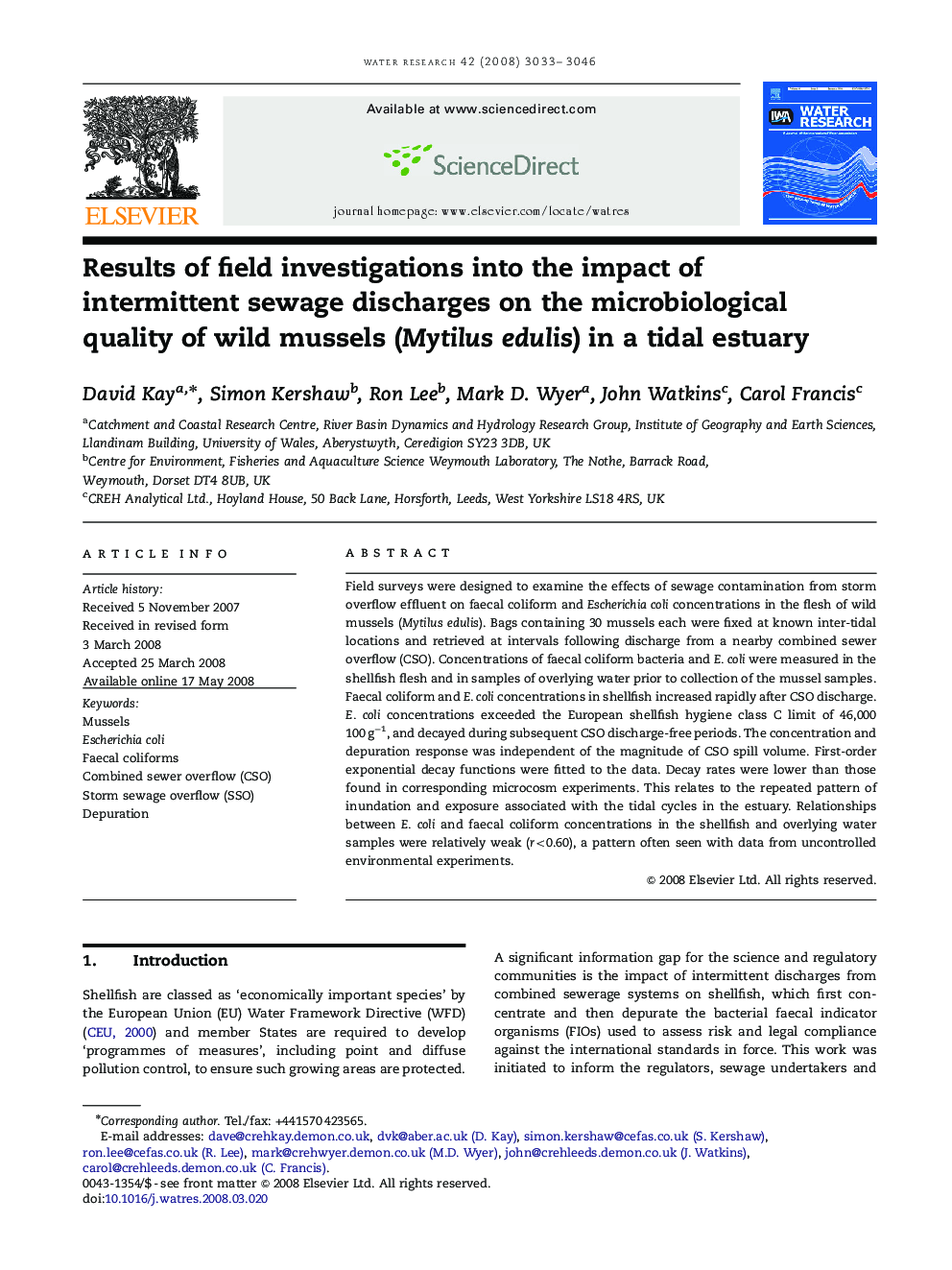| Article ID | Journal | Published Year | Pages | File Type |
|---|---|---|---|---|
| 4485576 | Water Research | 2008 | 14 Pages |
Field surveys were designed to examine the effects of sewage contamination from storm overflow effluent on faecal coliform and Escherichia coli concentrations in the flesh of wild mussels (Mytilus edulis). Bags containing 30 mussels each were fixed at known inter-tidal locations and retrieved at intervals following discharge from a nearby combined sewer overflow (CSO). Concentrations of faecal coliform bacteria and E. coli were measured in the shellfish flesh and in samples of overlying water prior to collection of the mussel samples. Faecal coliform and E. coli concentrations in shellfish increased rapidly after CSO discharge. E. coli concentrations exceeded the European shellfish hygiene class C limit of 46,000 100 g−1, and decayed during subsequent CSO discharge-free periods. The concentration and depuration response was independent of the magnitude of CSO spill volume. First-order exponential decay functions were fitted to the data. Decay rates were lower than those found in corresponding microcosm experiments. This relates to the repeated pattern of inundation and exposure associated with the tidal cycles in the estuary. Relationships between E. coli and faecal coliform concentrations in the shellfish and overlying water samples were relatively weak (r<0.60), a pattern often seen with data from uncontrolled environmental experiments.
